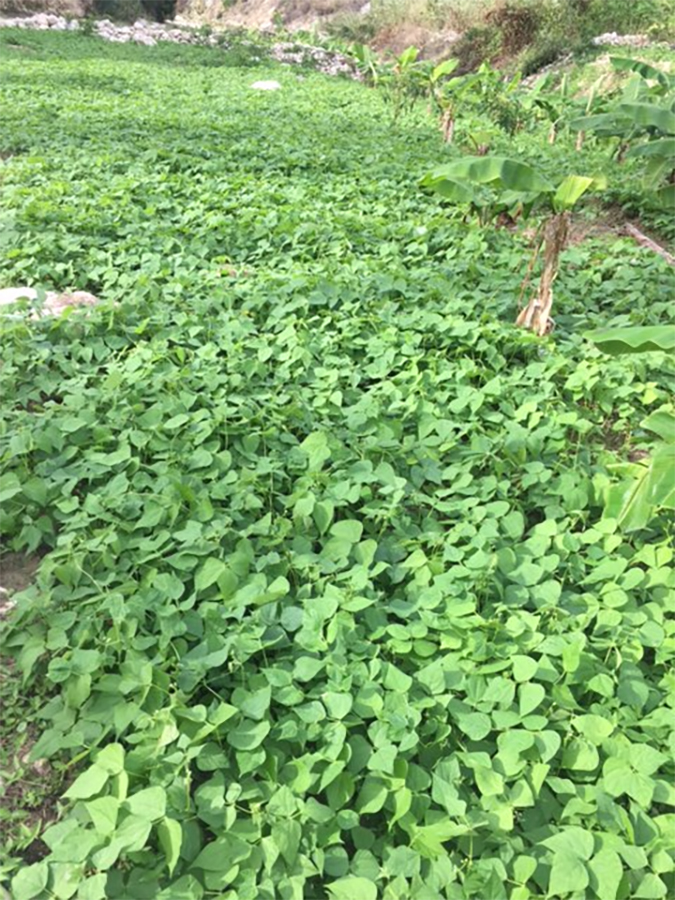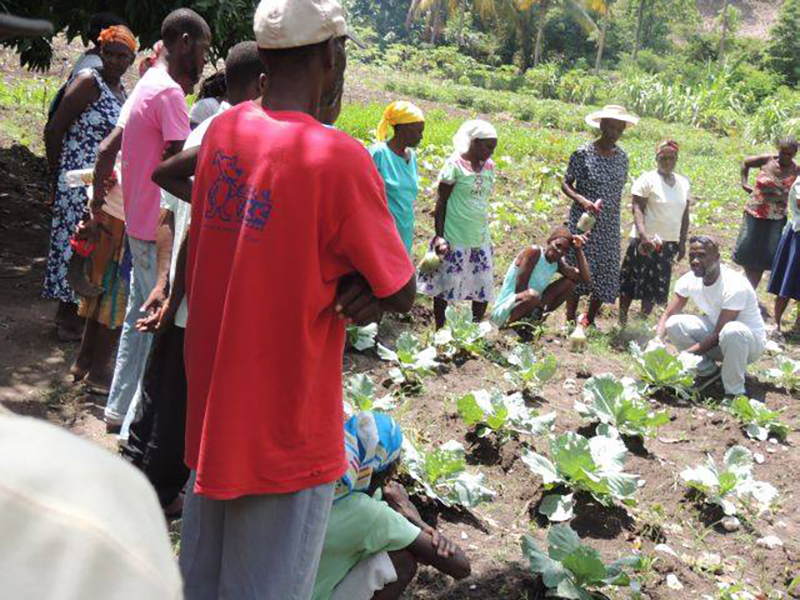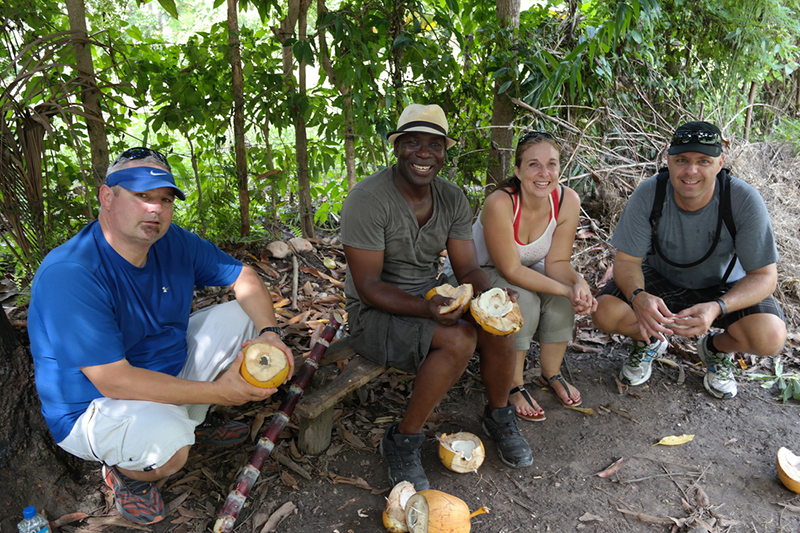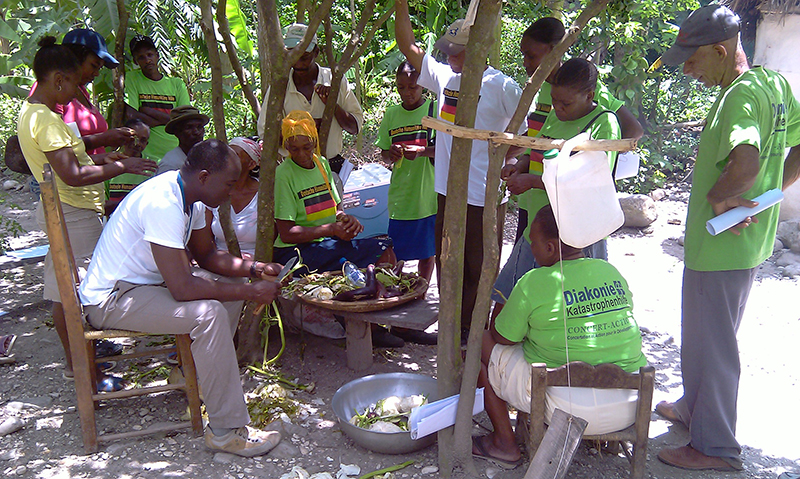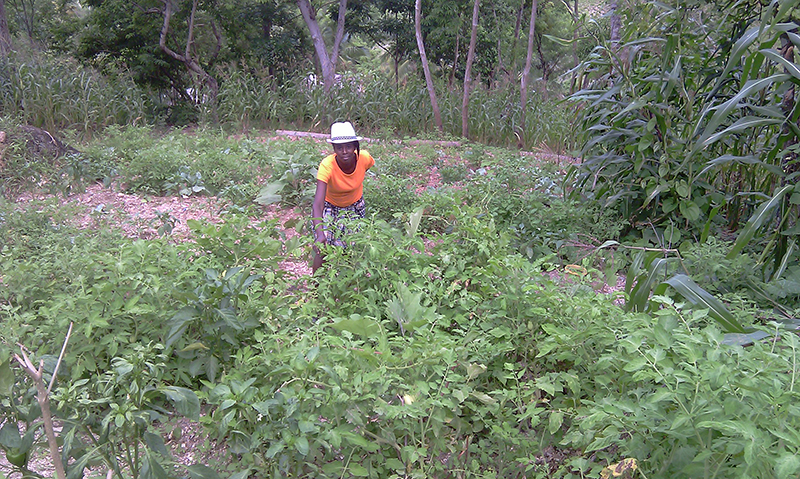Gardening Project
OSAPO has seen agriculture, not only as an opportunity to improve the living conditions of the family, but also as an alternative to build sustainability for the organization itself. If we want to continue supporting the populations sustainability long term, we must reduce dependency on donations and foreign aid. Good nutrition provides a mental and physical equilibrium for human beings, and results in an improvement in the quality of health of each person. OSAPO has significantly focused on this subject.
The key to improving the quality of health of a population is contributing to the availability of, access to and use of nutritional food. To this end, OSAPO has worked towards ensuring the supply of essential food to the community; but also, towards providing opportunities for families to have access to food, and providing them with the necessary understanding of how to successfully use these products.
OSAPO initiated a program called “Plant for Feeding” under which 250 women received seeds and technical assistance to grow vegetables. 60% of the production would be sold on the local market to provide women with the ability to generate their own incomes. More than 120 training sessions on nutrition and good cooking practices have been conducted for women. Thanks to this program, OSAPO has reduced the rate of malnutrition among pregnant women from 80% to 27% since 2014 with more than 120 training sessions on nutrition and good cooking practices have been conducted for women. This has greatly decreased the rate of anemia in pregnant women and also the mortality rate of malnourished children. With the El Nino phenomenon between 2014 and 2015, Haiti suffered the worst drought in 39 years, with more than 80% of crops destroyed. Over 5 million Haitians agonized over the hardships of food shortages. The number of children affected by malnutrition tripled. In response to this situation, OSAPO launched a specific nutritional program, which has helped more than 1,600 malnourished children.
In addition, more than 2 tons of bean and corn seeds were distributed to farmers in the area to reduce the problem of food shortages.

